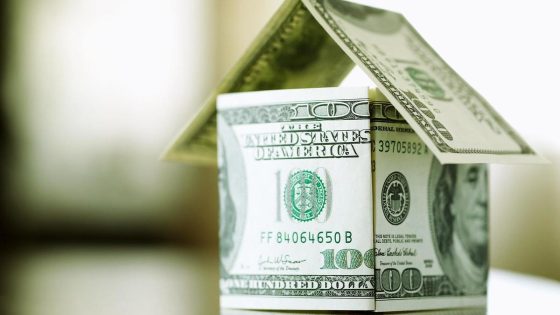The Consumer Federal Protection Bureau last week launched an inquiry into what the agency is calling “junk fees in mortgage closing costs.” These additional fees, involving home appraisal, title insurance and other services, have spiked in recent years and can add thousands of dollars to the final cost of buying a home.
Here’s a deeper dive into the additional mortgage fees buyers pay before getting the keys to their new home and why five types of charges in particular are currently being looked at by the CFPB.
What are mortgage junk fees?
According to the CFPB, junk fees are those that “far exceed the marginal cost of the service they purport to cover.”
Although mortgage companies can charge a homebuyer more than 200 different fees to close on a property, the CFPB is particularly interested five types of fees and services that have seen price spikes in recent years, an official with the agency told CBS MoneyWatch. They include discount points, credit report fees, home appraisal fees and title insurance.
Discount points: Also known as “mortgage points,” discount points are upfront fees homebuyers pay to lower the interest rate on their home loan. Mortgage companies pocket the buydown fee, as it is also sometimes called.
Credit report fees: As the name suggests, credit report fees are what home lenders charge buyers for conducting a credit report on the borrower. Those fees go to the three major credit reporting agencies — Equifax, Experian or TransUnion.
Home appraisal fees: Also known as property appraisal fees, these are fees lenders charge homebuyers to have a private appraiser visit the property being purchased and place a fair market value on the home.
Title insurance fee: Mortgage companies also charge homebuyers for getting a title insurance policy, which covers the lender in case there’s a lien on the property once a title search is conducted.
Mortgage origination fee: Typically between 0.5% and 1% of the cost of the home itself, the mortgage origination fee is what the home lender charges a homebuyer for starting a new home loan application.
Why have these fees increased in recent years?
For the most part, home appraisal and credit report fees have increased because of rising inflation and rising labor costs, one expert told CBS MoneyWatch, but mortgage origination fees are a different story.
“Some of these are set as a percentage of the transaction price of the house,” said Susan Wachter, a real estate professor at the University of Pennsylvania who studies housing finance. “When housing prices go up, so do the fees.”
Wachter said that now is a good time for the CFPB to look into what’s causing closing fees to increase, but emphasized that many of the services and fees are are essential to the homebuying process.
What are the government’s concern about mortgage junk fees?
The CFPB is worried that junk fees may be eating away at homebuyers’ ability to place a reasonable down payment on their home. Excessively high closing fees may also lead buyers to fall behind on mortgage payments, officials believe.
The typical homebuyer paid roughly $6,000 in loan closing costs in 2022 — an amount that included paying discount points, title insurance, appraisal, credit report and other fees, according to the CFPB. That’s up from $4,889 in 2021.
The agency is investigating whether mortgage fees have climbed too high, along with possible solutions such as new regulation to lower them, the elimination of certain fees altogether or having someone other than the homebuyer pay the fees, the official told CBS MoneyWatch. For now, the CFPB has asked homebuyers to share stories of how much they paid after closing on a home. That information will be used to determine the agency’s next step.
How are costly mortgage fees affecting homeownership?
The U.S. homeownership rate has fallen from 66% in 2023 to 65.6% in the first quarter of 2024. The two biggest hurdles to increasing the homeownership rates are a lack of affordable properties and buyers’ inability to save for a down payment, according to research from the National Association of Realtors. Excessive mortgage fees exacerbate those hurdles by eating away at homebuyers’ purchasing power.
Junk fees keep would-be homebuyers who are financially constrained on the sidelines, according to Wachter. In most areas of the country, it’s cheaper to rent housing than buy and “that’s because of down payments and those fees,” she said.
“It makes becoming a homeowner daunting,” Wachter said. “And rents are high too, so for young adults who are either living with their parents or with their buddies, [obtaining homeownership] is much more difficult for them than their older siblings or their parents.”
What do banks and lenders have to say about excessive closing fees?
The Mortgage Bankers Association (MBA), the trade group covering real estate finance, said there isn’t much lenders can do to lower or eliminate mortgage closing fees because the services they cover are legally required.
“Many of those disclosed costs, such as title, appraisal and credit reports are required by federal statutes, safety and soundness guidelines, and the Federal Housing Administration, Department of Veterans Affairs, and Fannie Mae and Freddie Mac as a condition of buying and insuring a mortgage,” the association said in a statement last week. “Moreover, the services these fees cover mitigate risk for taxpayers and borrowers alike.”
The MBA said lenders worked with the CFPB a decade ago on making sure mortgage fees were laid out clearly for buyers on mortgage disclosure forms. Rules that govern the mortgage process fall under the 2010 Dodd-Frank Act. If the CFPB wants to make changes, amending the Dodd-Frank Act “is the only appropriate vehicle to initiate that work,” the MBA said.
Source Agencies



